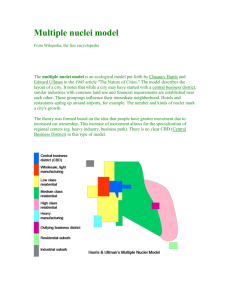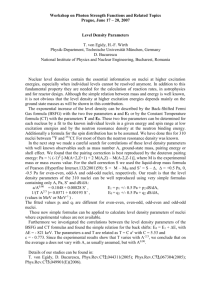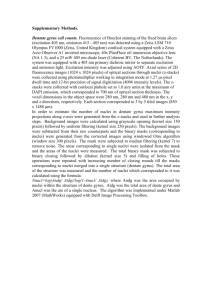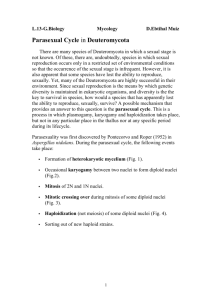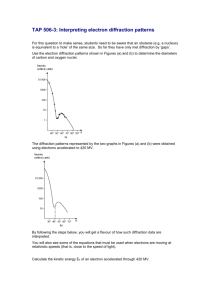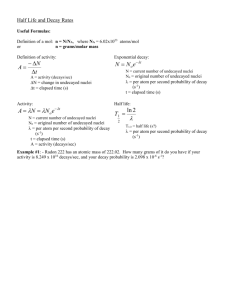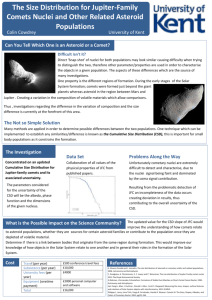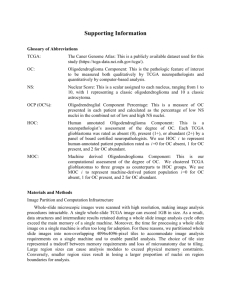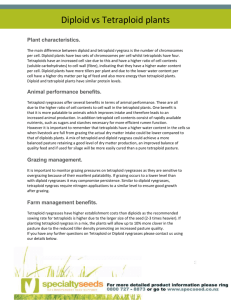Abstract
advertisement
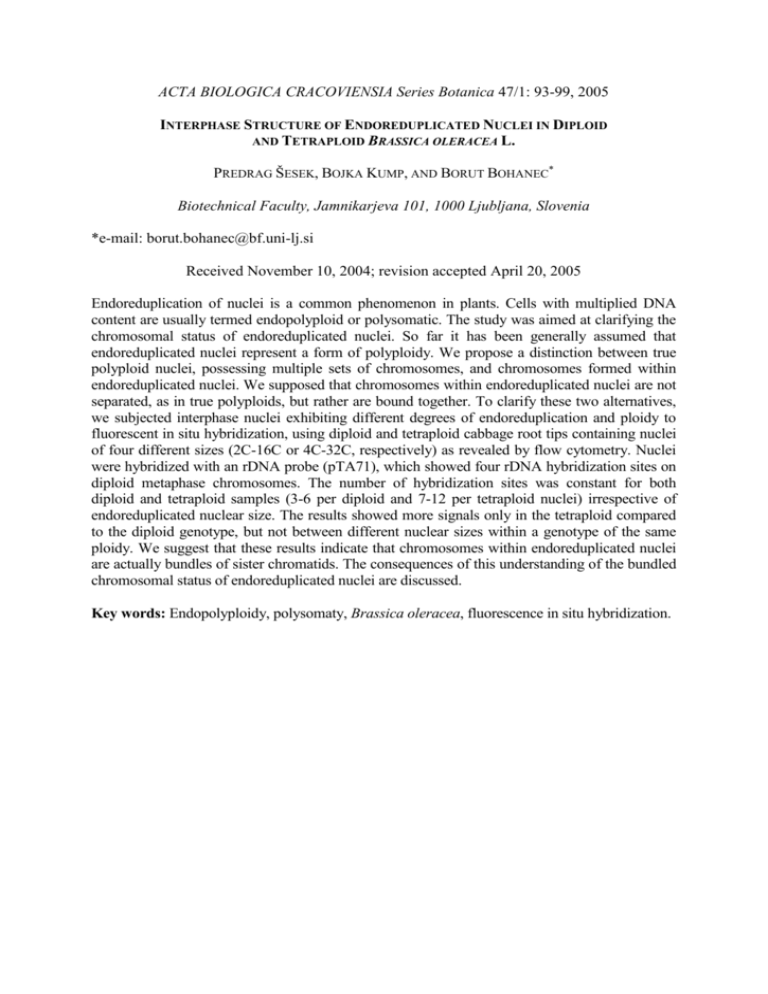
ACTA BIOLOGICA CRACOVIENSIA Series Botanica 47/1: 93-99, 2005 INTERPHASE STRUCTURE OF ENDOREDUPLICATED NUCLEI IN DIPLOID AND TETRAPLOID BRASSICA OLERACEA L. PREDRAG ŠESEK, BOJKA KUMP, AND BORUT BOHANEC* Biotechnical Faculty, Jamnikarjeva 101, 1000 Ljubljana, Slovenia *e-mail: borut.bohanec@bf.uni-lj.si Received November 10, 2004; revision accepted April 20, 2005 Endoreduplication of nuclei is a common phenomenon in plants. Cells with multiplied DNA content are usually termed endopolyploid or polysomatic. The study was aimed at clarifying the chromosomal status of endoreduplicated nuclei. So far it has been generally assumed that endoreduplicated nuclei represent a form of polyploidy. We propose a distinction between true polyploid nuclei, possessing multiple sets of chromosomes, and chromosomes formed within endoreduplicated nuclei. We supposed that chromosomes within endoreduplicated nuclei are not separated, as in true polyploids, but rather are bound together. To clarify these two alternatives, we subjected interphase nuclei exhibiting different degrees of endoreduplication and ploidy to fluorescent in situ hybridization, using diploid and tetraploid cabbage root tips containing nuclei of four different sizes (2C-16C or 4C-32C, respectively) as revealed by flow cytometry. Nuclei were hybridized with an rDNA probe (pTA71), which showed four rDNA hybridization sites on diploid metaphase chromosomes. The number of hybridization sites was constant for both diploid and tetraploid samples (3-6 per diploid and 7-12 per tetraploid nuclei) irrespective of endoreduplicated nuclear size. The results showed more signals only in the tetraploid compared to the diploid genotype, but not between different nuclear sizes within a genotype of the same ploidy. We suggest that these results indicate that chromosomes within endoreduplicated nuclei are actually bundles of sister chromatids. The consequences of this understanding of the bundled chromosomal status of endoreduplicated nuclei are discussed. Key words: Endopolyploidy, polysomaty, Brassica oleracea, fluorescence in situ hybridization.
